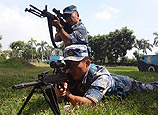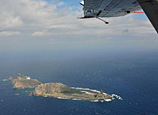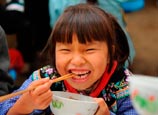
Another series of food safety scandals, and this time, it’s China’s high-end liquor industry that’s feeling the heat. It started last month when plasticizer was found in Bai Jiu - that’s rice wine - produced by Jiuguijiu.
Plasticizers can harm the liver, kidneys and reproductive system. Now, another famous drink - Moutai Jiu - made by Kweichow Moutai - has been accused by an anonymous report of also containing the chemical.
Kweichow Moutai suspended stock market trading for one day, after the report from Hong Kong was posted online.
The following day, the company quoted findings by the national food supervision body and other organizations, which say its liquor meets national standards.
But the damage has already been done and the company says the report had ulterior motives.
Yuan Renguo, Board Chairman of Kweichow Moutai, said, "Someone wanted to take advantage of public food safety awareness. They’ve made up this food safety issue. They wanted to create panic, do harm to China’s liquor industry and the interests of investors, in order to make quick money for themselves. "
The Hong Kong report was posted by a person with the nickname "Shui Jinghuang". He said he sent the sample to Hong Kong because he didn’t get a reply from Moutai in time.
The report shows 3.3 milligrams of plasticizer -- that’s nearly 50 percent above Hong Kong health limits.
Kweichow Moutai responded, saying it doubts the credibility of the test. The company pointed out that there’s no batch identification of the sample and that the layout appears to be faked.
Moutai’s chief engineer, Wang Li, says she’s confident about Moutai’s quality.
Wang Li, Chief Engineer of Kweichow Moutai, said, "We’ve built a complete safety control and monitoring system. All the raw materials and equipment that come into contact with the liquor meet with national standards."
But there are other reports that back the Hong Kong findings.
On Thursday, an investment company cited another anonymous report that studied liquor from 4 leading brands in China. It shows almost all the samples contain plasticizers, including those of Moutai.
Ma Yong is the vice chairman of the liquor committee at China’s National Food Industry Association.
Ma said, "While there are risks from plasticizers to the human body, it doesn’t mean there’s a definite danger. There is a small amount of carbon monoxide in the air -- these kinds of risks are everywhere in our lives."
But risks are risks. Right now in China, there’s no national standard for the amount of plasticizer allowed in beverages.
Sources say the General Administration of Quality Supervision has recently banned all its branches from examining new liquor samples, in what appears to be an exercise in damage limitation, in the wake of the scandal.
Safe or not safe?
That remains the simple question puzzling people across the country.














 Residential building collapses in E China's Ningbo
Residential building collapses in E China's Ningbo


![]()
